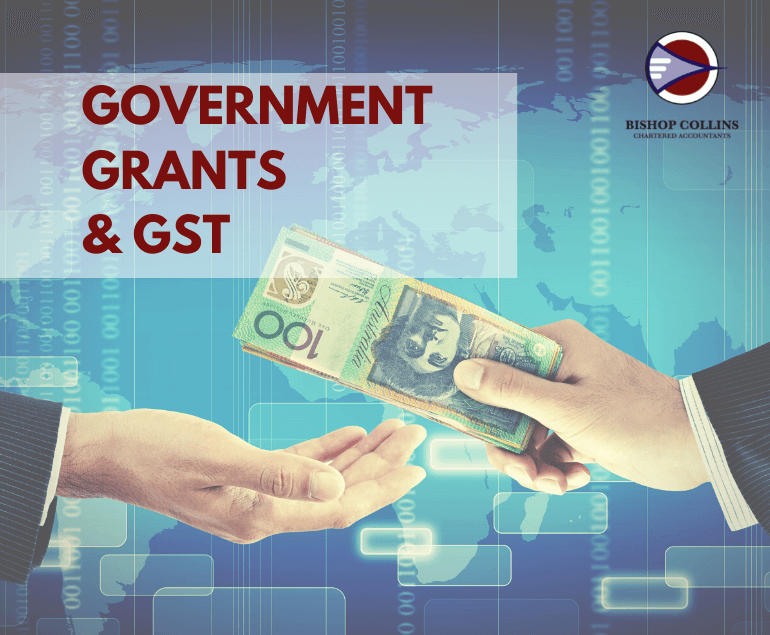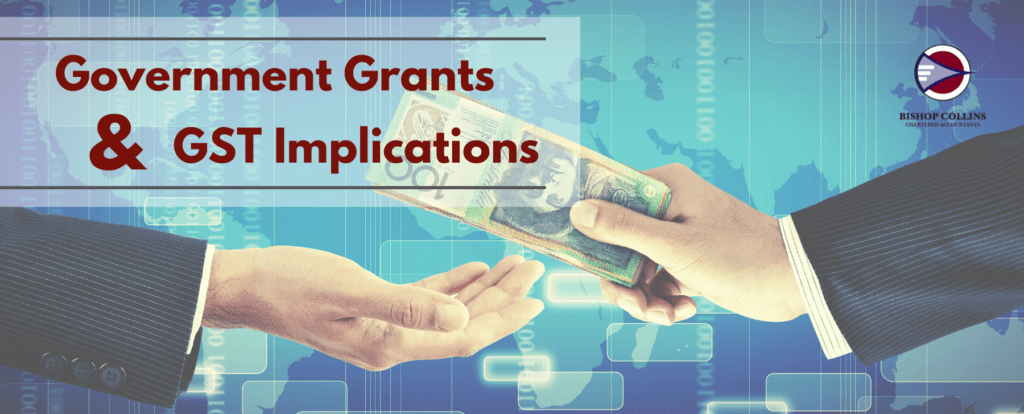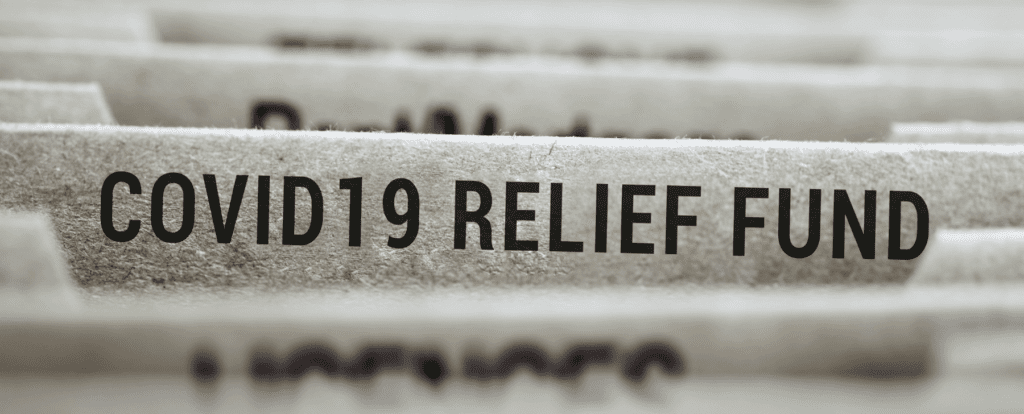
Glenn Harris
Director
Some government grants attract GST, and some do not. How to determine this depends partly on whether an obligation, a good or service or an expectation to do something is supplied in return for the grant or sponsorship money.
The technical word is if you “supply” something to the Government for the grant.
When you make “a supply”
If the government funding is not for a supply, you do not have any GST implications. However, if you provide something of value for the grant, it can be a supply and GST implications may arise. But not always! Yes, I know it’s just a little confusing.
A government grant is not a payment for a supply if you are only required to satisfy eligibility criteria to receive the grant – in general. Here are a few examples of eligibility criteria you may need to satisfy to receive a grant:
- Employing people
- Operating a business located within a state or territory. Government payments to provide income support to businesses are typically not for a supply and, therefore, will not have any GST implications.
- Holding an Australian Business Number (ABN).
Providing something of value for the payment requires you to do something more than just meet eligibility criteria. If you are required to do any of the following, you will be making a supply to the Government in return for the payment:
- Enter into a binding legal obligation to refrain from doing something (such as agreeing to stop grazing on your land for two years near national forests
- Enter into a binding legal obligation to do something. For example, agreeing to display at least 70% locally made products in your shop for 12 months
- Providing goods and services.
If the grant is for a supply that is a taxable supply, you will be required to remit 1/11th of a grant as GST.
To make it simple, the documents that accompany a Grant will nearly always tell you if it attracts GST.
Let’s look at some recent relevant ATO examples!
Example 1: COVID-19 impacted business payment support
Adam operates a fitness centre that employs five full time and two casual workers. As a direct result of COVID-19, the fitness centre has been closed for over three months and operates at reduced capacity even after re-opening.
Adam received the state government cash payment of $10,000 cash, a payment to businesses that meet eligibility criteria showing that they have been impacted by COVID-19. These funds can be used only for unavoidable business expenses. Any amount from this payment not spent will need to be repaid to the state government.
In this case, Adam does not have to pay GST on the cash payment received.
Example 2: Payment to support bushfire impacted grantee
The purpose of a government program like this is to provide financial assistance to certain grantees directly impacted by the bushfires and assist in the recovery of production. Eligible entities must meet the eligibility criteria set out by the Government for that particular program.
The financial assistance is not a payment for any supply, and in this particular example, the grantees do not have to pay GST on the payment received.
Here is a quick summary check of some current major grants:
- Cash Flow Boost – GST Free
- Job Keeper – GST Free
- Job Saver – GST Free
- State Government Voucher subsidy – Businesses receiving these, GST applies.
- Grants to support the creative economy – GST Free
- Concessional loans to support the creative economy – GST Free
Not sure about GST on your grant?
Both the grantor and grantee must treat grant transactions consistently for GST purposes.
Some governments and other entities provide recipient-created tax invoices (RCTI) for grants.
To ensure that the grant arrangement is treated consistently for GST purposes, if the RCTI shows that the grantee is making a taxable sale, the grantee must pay the GST. Conversely, if the grantee thinks it is not a taxable sale and an RCTI is issued showing that it is a taxable sale, they should discuss this with the grant provider.
If the grantee and grantor disagree about the GST implications for the grant arrangement, they can consider requesting a private ruling. However, we recommend that the grantee and grantor lodge a joint private ruling request to provide both with consistent advice based on accurate facts.
Sponsorship
Under a sponsorship arrangement, when an organisation undertakes a fundraising activity, it often receives support in the form of money. In return, it may provide such things as advertising, signage, naming rights, or another benefit of value.
This means that the sponsor receives something of value in return for the sponsorship, so the sponsorship payment is not a gift.
If the organisation is registered for GST, it has to pay GST on the sponsorship it receives. On the other hand, the sponsor may be able to claim a GST credit.
Overall remember,
Any grant is a good grant and if you are unsure about your GST obligations, talk to a tax professional.






